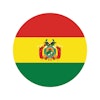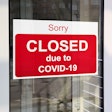
New analysis posted on 8 May by the Kaiser Family Foundation has revealed fresh data about the worldwide availability, use, and price of MRI. The information was published as part of a forum held by the foundation and the Peterson Center on Healthcare in Washington, DC, U.S.
On average, the U.S. has 39 MRI units available per 1 million people, compared with an average of 22 in comparable countries (although Japan takes the top spot, with 52 MRI units per 1 million people). As for MRI use, an average of 118 MRI exams are performed per 1,000 people per year in the U.S., compared with an average of 83 per 1,000 people in comparable countries.
| Average MRI availability, use in U.S. and other countries | ||
| Comparable country average | U.S. | |
| MRI scanner availability per 1 million population | 22 | 39 |
| MRI scans performed per 1,000 population | 83 | 118 |
Using data from 2014, Kaiser found that the average price of these MRI exams was higher in the U.S. than other wealthy countries.
| Average MRI exam price in the U.S. and other countries | ||||
| Australia | Switzerland | U.K. | U.S. | |
| MRI exam price | $215 | $503 | $788 | $1,119 |
In addition, the national 95th percentile average price of an MRI in the U.S. is $3,031, according to the International Federation of Health Plans, authors Rabah Kamal and Cynthia Cox wrote.
The U.S. has higher prices for most healthcare services and prescription drugs, although the use of several services such as physician consultations and hospital stays is lower than in many comparable countries. However, the use of other services such as C-sections and knee replacements is higher in the U.S. than in similar countries, Kamal and Cox wrote.
The authors also noted the following:
- In 2016, the U.S. spent 18% of its gross domestic product (GDP) on healthcare, whereas the next highest country (Switzerland) spent 12%.
- The average amount spent on healthcare per person in comparable countries is half of the amount spent in the U.S. ($5,198 versus $10,348).
- Aside from Sweden, the U.S. has the fewest physician consultations per capita among similarly wealthy countries, averaging 3.9 consultations per person, compared with 7.6.
- Patients in the U.S. have an average hospital stays of six days, compared with 10 days in comparable countries.
"Nearly a fifth of the [U.S.] economy goes to healthcare spending -- a far larger share than in any other large, wealthy country in the world," the foundation said in a statement. "Research suggests that price, rather than the volume of services, is the main driver of this disparity, and price is also a primary factor in pushing up the nation's health spending over time."



















